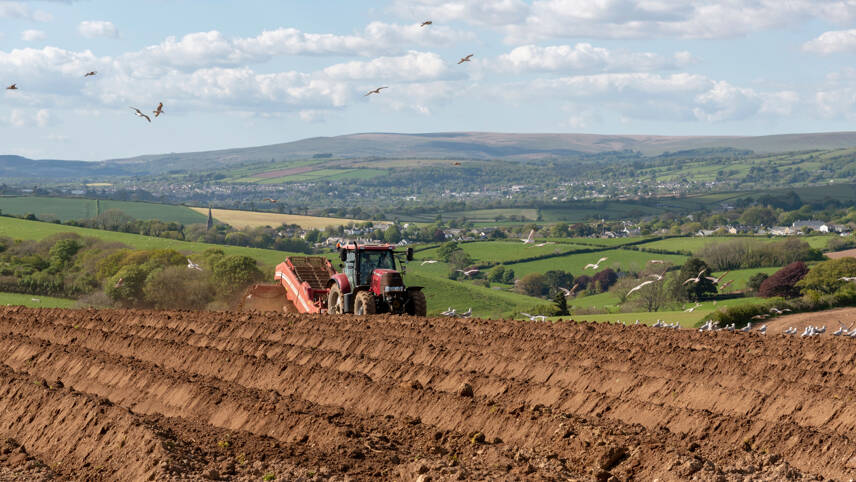Register for free and continue reading
Join our growing army of changemakers and get unlimited access to our premium content

Coffey spoke to a host of businesses and investors at a Wildlife Trusts event hosted by Hogan Lovells. The Environment Secretary used the event to discuss progress against the 23 action-orientated targets of the Montreal-Kunming Global Biodiversity Framework (GBF).
The GBF was drawn up at the CBD COP15 conference in Montreal in December and is aimed at halting land and water deterioration, restoring 30% of degraded ecosystems on land and sea by 2030 and unlocking new finance streams for nature recovery.
Coffey told delegates that meeting the GBF would be a “shared endeavour” and called on businesses to engage with policymakers to help shape how the goals would be achieved.
“These are stretching targets for every country, but they are global targets,” Coffey said. “And it really matters that this is a global effort. It’s a shared endeavour, whether it’s 30 by 30, whether it’s also the first time we’ll have proper metrics, proper reporting, that is so important.
“And I think that it is critical to bring business into this as opposed to something quite nebulous. And we’re still at the start of that journey. It matters that we get more engagement from the private sector as well, who can help shape some of that. I am proud that that UK now is at the forefront of efforts to implement that new global nature agreement.”
Coffey claimed that the “clock is ticking” to deliver the Framework, but spoke of various initiatives that the Government is championing to drive progress, adding that the UK would also play a part in the global efforts to mobilise at least $200bn for nature by 2030.
Coffey stated that the Government would “work closely” with the Wildlife Trusts and other organisations as part of a National Biodiversity Strategy and Action Plan, which has not been updated since 2012.
The UK is also aiming to attract investment to nature markets and Coffey specifically mentioned that the Government would support the work of the Taskforce on Nature-Related Financial Disclosures and Transition Plan Taskforce.
Natural Environment Investment Readiness Fund
Coffey’s speech came after Defra had confirmed it will launch new dedicated funding for farmers to deliver nature-based projects that improved restoration and conservation while attracting private finance investments.
A ‘Nature for Finance’ was held at 10 Downing Street on Tuesday (20 June) where Coffey announced that the Government will launch an additional round of the Natural Environment Investment Readiness Fund (NEIRF).
To date, 86 projects across England have received up to £100,000 through two phases of the £10m NEIRF fund. The fund is aimed at creating revenue for organisations that harness nature to attract investment.
For the first time, the fund will focus on farmers, to help the sector tap into nature-based solutions to drive biodiversity improvements.
“Food production and enhancing the environment go hand in hand. We must continue to support farmers to keep our nation fed while also safeguarding the valuable biodiversity and landscapes we rely on,” Coffey said.
In April, Defra and the Green Finance Institute (GFI) announced they would deliver a body of research outlining nature-related financial risk estimates and the impact that the climate and ecological crises could have on the UK economy.
Coffey confirmed that a pilot phase of the GFI’s investment readiness toolkit would commence, offering farmers advice on how to create investable nature finance projects.
The Government also confirmed it will launch a consultation later this year on the interventions needed to mobilise additional nature finance through voluntary markets.
Sustainable farming policy
Farmers and environmental groups alike expressed concerns over the financial wellbeing of British farmers late last year amid delays to reviews of these subsidy schemes amid two consecutive changes in Prime Minister.
At the start of the year, Defra provided more information on its post-Brexit payment schemes for farmers. The Department stated that it was “speeding up” the rollout of its Sustainable Farming Incentive (SFI) programme, providing farmers with payments for six additional actions to improve ecosystems this year when these payments were initially due to be phased in over a longer time period.
The SFI was created in a bid to ensure farmers are paid for preserving ‘common goods’ relating to nature, as well as for the foods and ingredients they produce. The first payments, awarded last year, were made to farmers for improving soil health and moorlands. Around 1,900 farmers received these payments.
It is not yet confirmed whether these measures will be enough to help the UK meet its nature goals. The Office for Environmental Protection (OEP) has repeatedly claimed that the UK is off track to meet all of its key nature targets and, therefore, its overarching mission to leave nature in a better state for the next generation.
Last month, charities including the WWF, RSPB and the National Trust partnered with a host of farmers and a selection of business leaders to raise awareness of the need to improve nature in agriculture in the UK.
The charities, supported by former Defra advisor Henry Dimbleby MBE and the chief executives of Tesco, NatWest and Triodos Bank and the chair of the John Lewis Partnership, warned that the UK’s food system is driving biodiversity decline.


Please login or Register to leave a comment.